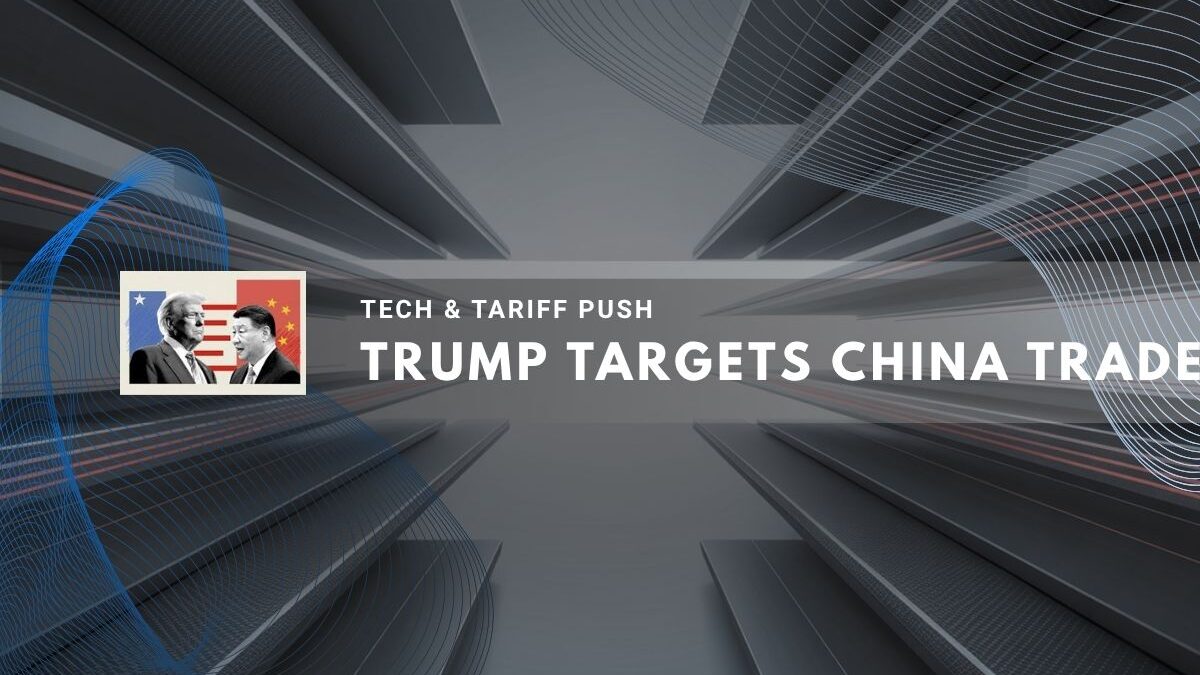President Trump announced plans for a potential 100% tariff on Chinese imports starting November 1, 2025, in reaction to new Chinese export controls on rare earth elements. This move could escalate existing trade tensions between the U.S. and China.
Tariff Details and Timing
President Donald Trump announced on October 10, 2025, that the United States will impose an additional 100% tariff on imports from China starting November 1, 2025, or possibly sooner depending on China’s further actions. This tariff is in addition to existing tariffs, which currently average around 30%, meaning total tariff rates could reach approximately 130% on some goods. The move aims to retaliate against China’s recent export restrictions on rare earth minerals and related technologies.[1][2][3][4]
Export Controls on Critical Software
Alongside tariffs, the U.S. plans to implement export controls on “any and all critical software” from American firms to China, effective the same date. This reflects retaliation targeting China’s controls on technology exports crucial to advanced industries.[2][3][1]
China’s Tightened Rare Earth Export Restrictions
China expanded export controls on rare earth metals and related technologies, requiring licenses for foreign companies exporting products containing these materials. The measures aim to protect national security and restrict exports tied to military uses, affecting a range of industries including semiconductors and defense.[1][2][3]
Expanded Controls
On October 9, 2025, China expanded export restrictions on 12 rare earth elements out of the 17 total, including newly added metals like terbium, dysprosium, and europium. The controls now also extend to technologies used in mining, smelting, recycling, and manufacturing involving rare earths. Foreign companies must obtain special licenses to export products containing Chinese rare-earth materials or related technologies, with exports tied to military applications strictly prohibited.[5][6][7][8][9]
Strategic Importance
Rare earth metals are critical for electronics, computer chips, aerospace, renewable energy, and defense systems. China produces over 90% of the world’s processed rare earths and uses export controls as a strategic lever in global trade and security negotiations.[6][10][5]
Trade Tensions and Diplomatic Impact
Trade tensions intensified as President Trump threatened to cancel his upcoming meeting with Chinese President Xi Jinping at the Asia-Pacific Economic Cooperation summit, citing China’s aggressive export controls on rare earths. However, Trump later clarified he had not officially canceled but was uncertain if the meeting would occur.[1][2][3][4]
Potential Impact on U.S.-China Relations
Trump expressed frustration with China’s measures, calling them “shocking” and accusing China of holding the world “captive” through these restrictions. He suggested the possibility of canceling an upcoming meeting with Chinese President Xi Jinping at the Asia-Pacific Economic Cooperation (APEC) summit in South Korea later this month but later indicated he might still attend.[11][12][13][14][15][16][17][1]
Economic and Market Reactions
The announcement led to a significant market reaction, with the S&P 500 dropping 2.7%, marking the steepest decline since April 2025 amid fears of a revived trade war and potential global economic slowdown.[4]
